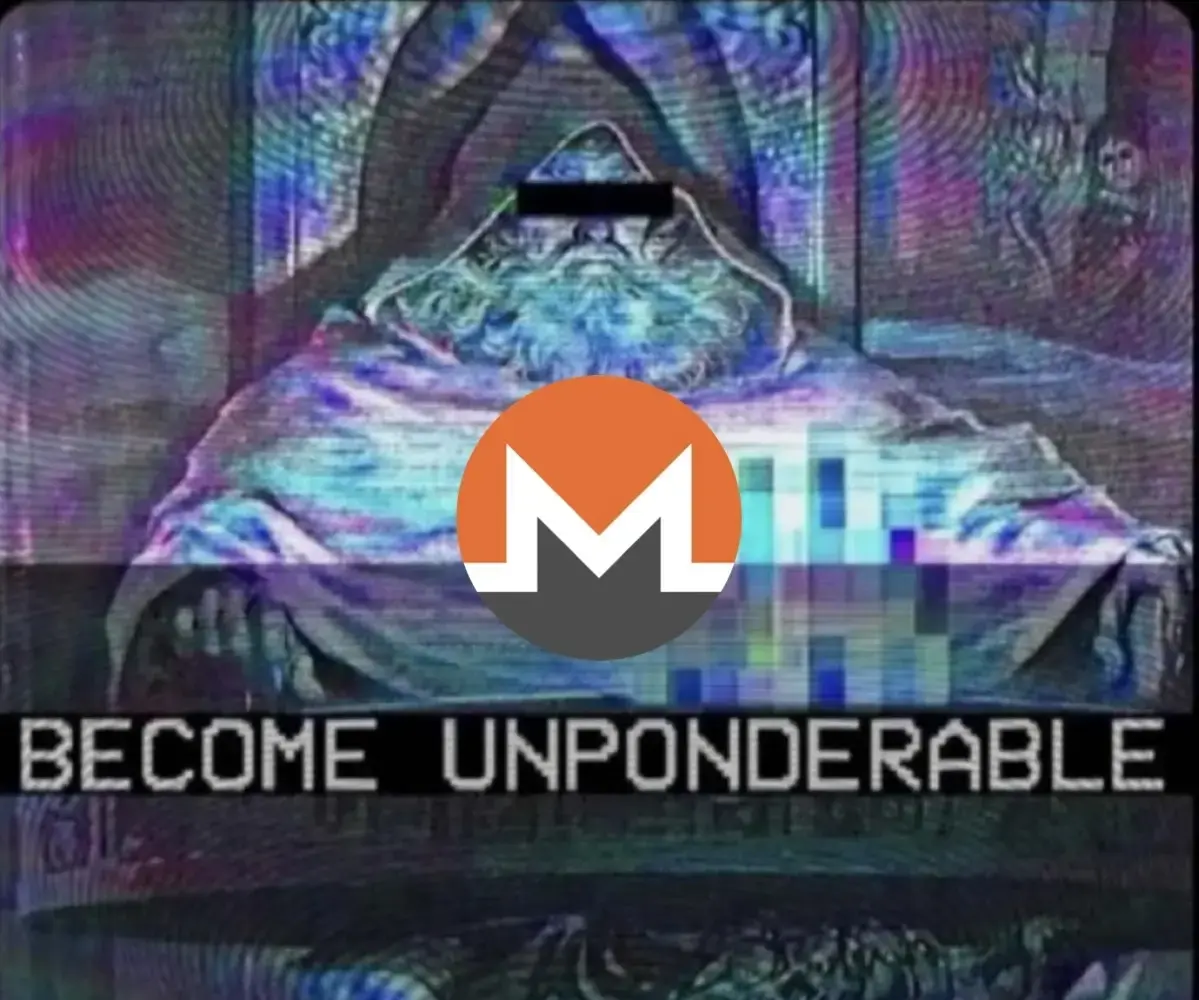Woah some of those documentaries make my blood boil
Thank ^_^
From the article:
The films removed from Netflix include "3 Logical Exits"; "3000 Nights"; "A Drowning Man"; "A Man Returned"; "A World Not Ours"; "Ave Maria"; "Bonboné"; "Children of Shatila"; "Chronicle of a Disappearance"; "Condom Lead"; "Divine Intervention"; "Frontiers of Dreams and Fears"; "Ghost Hunting"; "Giraffada"; "Habibi"; "In Vitro"; "Like Twenty Impossibles"; "Maradona’s Legs"; "Mars at Sunrise"; "Omar"; "Salt of this Sea"; "Samouni Road"; "The Crossing"; and "Xenos"
Also definitely refrain from pasting in the URL into https://archive.is as it is definitely illegal to circumvent paywalls by pretending to be a google web crawler to archive the site
Epub file of the book:
Huh. They deleted my post? Or is there a weird lemmy reason why I cant see it in this thread? weird.
Edit: Nevermind. The thread I posted in was a crosspost. See here: https://lemmy.dbzer0.com/post/29567097
From the paper (proton drive file) https://drive.proton.me/urls/Z6DPGQCZ0M#GxZ6dDb2oV5W
The results suggest that Denuvo does protect legitimate sales to an estimated mean of 15 percent of total revenue and median of 20 percent, but there is little justification to employ Denuvo long-term (i.e. for more than three months), especially given that Denuvo can have negative technical side effects and is generally disliked by users.
Remember That DNA You Gave 23andMe?
23andMe is not doing well. Its stock is on the verge of being delisted. It shut down its in-house drug-development unit last month, only the latest in several rounds of layoffs. Last week, the entire board of directors quit, save for Anne Wojcicki, a co-founder and the company’s CEO. Amid this downward spiral, Wojcicki has said she’ll consider selling 23andMe—which means the DNA of 23andMe’s 15 million customers would be up for sale, too.
23andMe’s trove of genetic data might be its most valuable asset. For about two decades now, since human-genome analysis became quick and common, the A’s, C’s, G’s, and T’s of DNA have allowed long-lost relatives to connect, revealed family secrets, and helped police catch serial killers. Some people’s genomes contain clues to what’s making them sick, or even, occasionally, how their disease should be treated. For most of us, though, consumer tests don’t have much to offer beyond a snapshot of our ancestors’ roots and confirmation of the traits we already know about. (Yes, 23andMe, my eyes are blue.) 23andMe is floundering in part because it hasn’t managed to prove the value of collecting all that sensitive, personal information. And potential buyers may have very different ideas about how to use the company’s DNA data to raise the company’s bottom line. This should concern anyone who has used the service.
DNA might contain health information, but unlike a doctor’s office, 23andMe is not bound by the health-privacy law HIPAA. And the company’s privacy policies make clear that in the event of a merger or an acquisition, customer information is a salable asset. 23andMe promises to ask its customers’ permission before using their data for research or targeted advertising, but that doesn’t mean the next boss will do the same. It says so right there in the fine print: The company reserves the right to update its policies at any time. A spokesperson acknowledged to me this week that the company can’t fully guarantee the sanctity of customer data, but said in a statement that “any scenario which impacts our customers’ data would need to be carefully considered. We take the privacy and trust of our customers very seriously, and would strive to maintain commitments outlined in our Privacy Statement.”
Certain parties might take an obvious interest in the secrets of Americans’ genomes. Insurers, for example, would probably like to know about any genetic predispositions that might make you more expensive to them. In the United States, a 2008 law called the Genetic Information Nondiscrimination Act protects against discrimination by employers and health insurers on the basis of genetic data, but gaps in it exempt providers of life, disability, and long-term-care insurance from such restrictions. That means that if you have, say, a genetic marker that can be correlated with a heart condition, a life insurer could find that out and legally deny you a policy—even if you never actually develop that condition. Law-enforcement agencies rely on DNA data to solve many difficult cases, and although 23andMe says it requires a warrant to share data, some other companies have granted broad access to police. You don’t have to commit a crime to be affected: Because we share large chunks of our genome with relatives, your DNA could be used to implicate a close family member or even a third cousin whom you’ve never met. Information about your ethnicity can also be sensitive, and that’s encoded in your genome, too. That’s all part of why, in 2020, the U.S. military advised its personnel against using consumer tests.
Spelling out all the potential consequences of an unknown party accessing your DNA is impossible, because scientists’ understanding of the genome is still evolving. Imagine drugmakers trolling your genome to find out what ailments you’re at risk for and then targeting you with ads for drugs to treat them. “There’s a lot of ways that this data might be misused or used in a way that the consumers couldn’t anticipate when they first bought 23andMe,” Suzanne Bernstein, counsel at the Electronic Privacy Information Center, told me. And unlike a password that can be changed after it leaks, once your DNA is out in the wild, it’s out there for good. Some states, such as California, give consumers additional genetic-privacy rights and might allow DNA data to be deleted ahead of a sale. The 23andMe spokesperson told me that “customers have the ability to download their data and delete their personal accounts.” Companies are also required to notify customers of any changes to terms of service and give them a chance to opt out, though typically such changes take effect automatically after a certain amount of time, whether or not you’ve read through the fine print. Consumers have assumed this risk without getting much in return. When the first draft of the human genome was unveiled, it was billed as a panacea, hiding within its code secrets that would help each and every one of us unlock a personalized health plan. But most diseases, it turns out, can’t be pinned on a single gene. And most people have a boring genome, free of red-flag mutations, which means DNA data just aren’t that useful to them—at least not in this form. And if a DNA test reveals elevated risk for a more common health condition, such as diabetes and heart disease, you probably already know the interventions: eating well, exercising often, getting a solid eight hours of sleep. (To an insurer, though, even a modicum of risk might make someone an unattractive candidate for coverage.) That’s likely a big part of why 23andMe’s sales have slipped. There are only so many people who want to know about their Swedish ancestry, and that, it turns out, is consumer DNA testing’s biggest sell.
Wojcicki has pulled 23andMe back from the brink before, after the Food and Drug Administration ordered the company to stop selling its health tests in 2013 until they could be proved safe and effective. In recent months, Wojcicki has explored a variety of options to save the company, including splitting it to separate the cash-burning drug business from the consumer side. Wojcicki has still expressed interest in trying to take the company private herself, but the board rejected her initial offer. 23andMe has until November 4 to raise its shares to at least $1, or be delisted. As that date approaches, a sale looks more and more likely—whether to Wojcicki or someone else.
The risk of DNA data being misused has existed since DNA tests first became available. When customers opt in to participate in drug-development research, third parties already get access to their de-identified DNA data, which can in some cases be linked back to people’s identities after all. Plus, 23andMe has failed to protect its customers’ information in the past—it just agreed to pay $30 million to settle a lawsuit resulting from an October 2023 data breach. But for nearly two decades, the company had an incentive to keep its customers’ data private: 23andMe is a consumer-facing business, and to sell kits, it also needed to win trust. Whoever buys the company’s data may not operate under the same constraints.
I mean, that’s the point
They say a carrier unlocked phone is recommended because carrier locked phones often disable the option to OEM unlock your phone in the Developer settings.
What does this do
In germany they fine your ass if they find out you’re torrenting.
Love it when Mental Outlaw makes a video about i2p
Check out his other i2p videos
Wow, thank you kind sir 😊
Lmao fuck off with your ad
I once used my left hand for the right hand rule because i was writing with my right hand during a physics test
Needless to say, i got the wrong sign
there's also reencoding your plunder using Blender :)
Port forwarding without global routing with OpenVPN
cross-posted from: https://lemmy.dbzer0.com/post/26553762
> How can I use my VPNs port forwarding feature while also disabling global routing by adding “route-nopull” in the OpenVPN config? Using hide.me vpn > > I found a relevant post, but the links to the anwsers don't work anymore: https://forum.netgate.com/topic/127557/openvpn-client-port-forwarding-route-nopull-issue
Skepticism Sunday #3 — August 11, 2024


Crap, i forgot about last week. Time for another Skepticism Sunday!
Stay on topic:
-
This thread is only for comments discussing the uncertainties, shortcomings, and concerns some may have about Monero.
-
NOT the positive aspects of it.
-
Discussion can relate to the technology itself or its economics.
-
Talk about community and price is not wanted, but some discussion about it maybe allowed if it relates well.
-
Be as respectful and nice as possible. This discussion has potential to be more emotionally charged as it may bring up issues that are extremely upsetting: many people are not only financially but emotionally invested in the ideas and tools around Monero.
---
How it works:
-
Post your concerns about Monero in reply to this thread.
-
If you can address these concerns, or add further details to them -- reply to that comment. This will make it easily sort-able.
-
Upvote the comments that are the most valid criticisms of it that have few or no real honest solutions/answers to them.
-
The comment that mentions the biggest problems of Monero should have the most karma.
---
> The first principle is that you must not fool yourself — and you are the easiest person to fool.
Skepticism Sunday #2 — July 28, 2024


I’m taking on the mantle this week.
Stay on topic:
-
This thread is only for comments discussing the uncertainties, shortcomings, and concerns some may have about Monero.
-
NOT the positive aspects of it.
-
Discussion can relate to the technology itself or its economics.
-
Talk about community and price is not wanted, but some discussion about it maybe allowed if it relates well.
-
Be as respectful and nice as possible. This discussion has potential to be more emotionally charged as it may bring up issues that are extremely upsetting: many people are not only financially but emotionally invested in the ideas and tools around Monero.
---
How it works:
-
Post your concerns about Monero in reply to this thread.
-
If you can address these concerns, or add further details to them -- reply to that comment. This will make it easily sort-able.
-
Upvote the comments that are the most valid criticisms of it that have few or no real honest solutions/answers to them.
-
The comment that mentions the biggest problems of Monero should have the most karma.
---
> The first principle is that you must not fool yourself — and you are the easiest person to fool.
A federated localmonero
With localmonero shutting down, what would be the challenges of creating a federated version of localmonero? Traders and buyers can have accounts at different servers but still be able to trade each other and see each others' listings.
The pros i can see are: It would be harder to stop without a single point of failure, and brave server maintainers can host their services in different jurisdictions to prevent legal troubles. And it would be very difficult to prosecute server admins, as they aren't the creator but merely hosting a site.
Can we have a "Monero Standard" written by someone that knows how to write
Securely store, share, and access your important files and photos. Anytime, anywhere.

No shade at the person Michael Fitzgerald (or Stoic.xmr). He's probably a good person
But clearly a better quality book with the same name can be written by a person that understands that the average paragraph contains at least three or four sentences. I can write one. I've never written a book before, but fuck it.
What topics would you like to be included in a book titled "Monero Standard"?
on the monero circular economy
The monero community is building a lot of infrastructure to build a circular economy, and there is a lot of recent developments in that regard, such as xmrbazaar which is a sort of ebay and the sellers accepts monero. This is great. However, how can we penetrate markets outside of the monero economy? I fear that Monero still has the "dangerous hacker crypto which funds terrorism and north korea" reputation, and although while not true, could severely pause monero adoption and hurt us as a community as a whole.
We as a community value privacy, but i feel like we need to work together as a community to forge an alternative to the mainstream narrative about privacy coins. I'm thinking something revolutionarily positive, at least in the USA, such as making a charity that gives directly to homeless people, or setting up a decentralized network of people that work together to distribute life saving drugs for cheap (because drug prices are really fricking high here). Privacy coins tend to attract privacy minded people, and privacy minded people won't even touch twitter with a 10 foot pole because of all the injected ads and the tracking, and i respect that. But, one of these days we gotta do something big to break the mainstream narrative.
I personally am locked in, I have a girlfriend and two pets and a full time job, but for those that have less to lose and more time and resources to spare for the cause, i say let's fking do it. Anything, man. Let's change society with this thing.
I cringe, you cringe, we cringe together | Saylor’s 21 rules for Bitcoin
“I didn't label it The 21 Rules of Bitcoin, because everybody's got their rules, and I'm not so presumptuous to think that I know The 21 Rules, but I have my 21 rules, and I'm delighted to share them with you today.” Save the date of BTC Prague 2025: 🗓️ June 19—21, 2025 You can't miss that! 🎟️ ...

Monero as a Digital Offshore Bank Account
I've been contemplating about Monero's place in society. If Bitcoin is (debatable) "Digital Gold" then Monero is a non-custodial Digital Offshore Bank Account.
There has never been a point in history when there's been a means to hide your wealth perfectly. The possiblities are endless (i've also drank too much coffee this morning). It is a way to break free from the chains of debt.
Struggling to pay off your medical debt? Hide all your money in Monero, tell the banks to screw themselves, declare bankruptcy, and rebuild your credit score after the dust settles. Too much student loan debt and afraid they'll come after your money after you default? Hide your money in Monero and tell those vultures in Sally Mae to fuck off. (I skipped a couple steps and important details here and there)
Credit card debt? Chapter 7 their asses and they can't touch your money when it's protected by ring signatures lmao get fucked.
Of course, you still have to protect your assets such as your house. I haven't tried these strategies out yet, as I still haven't been forced to the brink with my finances. But when the time comes, instead of waiting for the government to implement more robust social safety nets, Monero can protect the wealth I have rightfully earned through my labor.
Personally, my father is getting crushed by credit card debt. I think he's paid more interest than the principal amount to those lowlife banker scumbags. Fortunately he's able to survive, but he could be in a better place.
Any other scenarios where people can adopt an adversarial strategy against the system? More ways out for people suffering as an economic debt slave? I would like to see a "guide" for this too, a way to more perfectly say fuck you to debt collectors.
Concerned about my friend who’s a Bitcoin maxi
I’m posting this on the Monero sub because ya’ll are chill, the BTC community are occasionally peppered with nuts
My friend who’s a Bitcoin maxi has took all his savings and put it in bitcoin, i believe 10k USD more or less. He’s very (almost religiously) certain that bitcoin will skyrocket. I talk, debate and question his beliefs for weeks now, trying to take a nonjudgmental stance (although sometimes i falter), and there are three pieces of “evidence” that he believes Bitcoin will eventually 100k or even 1M
-
The bitcoin standard by Saifadean Ammous, a watered down textbook on Austrian economics that I’ve been reading recently actually.
-
The “Power Law”, basically a regression analysis on Bitcoin’s historic price and adoption, mainly esposed by this dude https://x.com/Giovann35084111 (here’s a youtube vid https://invidious.fdn.fr/watch?v=NxAkZ2tHQko)
-
The “Energy Hypothesis” of bitcoin, he thinks that bitcoin will allow society to capture excess energy generation and make it profitable through mining bitcoin
I’ve reviewed these and think it’s flimsy at best. It is under my belief that a store of value can only be feasible when either it is a medium of exchange or if it is backed by something (like fiat paper money, for example) that allows it to be an efficient medium of exchange, none of which applied to bitcoin right now.
I even try to suggest him books like Roger Ver’s Hijacking Bitcoin (that I converted from epub to pdf just for him) and he wouldn’t read it because “Ver’s a scammer and got fooled by BCH”. Although I really just think it’s heavy confirmation bias, Ver is indisputably a knowledgeable source for bitcoin (he was an early adopter, he’s “Bitcoin Jesus” for god’s sake, and has a lot of knowledge of the economics behind bitcoin given that he’s a businessman who’s built his businesses on top of bitcoin). Hijacking Bitcoin is an excellent book btw go check out the pdf I posted it a while ago on this sub
I’m just looking for advice on how to proceed. It was fun debating and dunking on him but at this point i’m just worried that the bitcoin bubble will burst and he’d lose his savings.
It’s one of those occasions where I kinda don’t want to be right in the debate
PSA: when getting monero from a centralized exchange, ALWAYS withdraw your funds to your non-custodial wallet when you can
Unless you enjoy holding paper monero, and letting centralized exchanges get away with fractional reserves, always withdraw your crypto!
Hey guys can you turn the monero price down just a little bit
I’m tryna buy more monero bro just dip it just a tad. Just a touch.
Not really about monero but here's a PDF of Hijacking Bitcoin just for you beautiful people :-)
Securely store, share, and access your important files and photos. Anytime, anywhere.

New rabbit hole: snek evolutionary biology
Snakes saw a burst of adaptation about 128 million years ago that led to them exploding in diversity and evolving up to three times faster than lizards

Any reading recommendations to plunge further into this new rabbit hole? 🤔
On the math of the inflationary effects of tail emission
At present, all notable proof-of-work currencies reward miners with both a blockreward, and transaction fees. With most currencies (including Bitcoin) phasin...
I stumbled across this short and well-written blog https://petertodd.org/2022/surprisingly-tail-emission-is-not-inflationary from this very unhinged reddit argument: https://old.reddit.com/r/Monero/comments/16wuha9/what_would_you_list_as_some_risk_factors_or/k2zwkar/
I took a physics course and I immediately recognized the differential equation listed in the blog post. The differential equation (and therefore its solution) looks exactly the same as the velocity of an object in freefall where there's drag that's proportional to the objects speed (I.E. basically it's terminal velocity. You can't accelerate forever under freefall in an atmosphere).
In physics, you can feel this yourself. When you're a passenger in a slow moving car, putting your hand out of the window you'll notice some slight force. But when you're in the freeway, putting your hand out is like arm wrestling the air. The drag is proportional to the velocity
The blog post argues that the circulating supply of Monero is asymptotically constant (more specifically, the ratio of the rate of increase of the Monero supply divided by the rate of Monero being lost from the Monero supply)
Now there's a LOT of assumptions hidden under the differential equation. A diff eq only really makes sense in predicting something when the assumptions are checked. There are two assumptions:
-
The rate at which Monero increases is constant
-
The rate at which Monero is lost (from lost wallets, boating accidents, savings accounts) is proportional to the amount of Monero in the system.
1 seems solid: it's 0.6 per block. Assumption 2 however is a bit confusing? I expect the amount of Monero being lost from the money supply proportional to the adoption of Monero. Monero adoption can be loosely proportional to the amount of Monero in the supply, given that Monero adoption is linear over time, but that is a big assumption.
I have, however, found an explanation for the tail emission of Monero that I found to be more compelling. Overall, let's say, worst case scenario, that nobody loses and nobody saves their Monero, and that monero whill increase a fixed amount per year with no decrease in the money supply. For the sake of simplicity, let's say there's 100 Monero in supply, and every year 10 Monero gets added into the supply. Then,
100 -> 110: 10% increase
In the second year, it goes from 110 to 120, which amounts to a:
110 -> 120: 9.1% increase
120 -> 130: 8% increase
Notice that every year, the rate at which your Monero inflates decreases asymptotically. After the 20th year, there's 300 Monero in supply, and on the 21nd year that's a 5% increase, so on and so forth.
So, the rate of inflation goes to zero. That doesn't mean that Monero has an asymptotically fixed supply, it just means that eventually there'd be enough Monero floating around where adding 0.6 per block wouldn't make a huge dent to the money supply and purely serves to incentivize mining without the exorbitant transaction fees seen in Bitcoin.
I'm no economist, I studied Math. But I studied enough Math to know when a diff eq doesn't really hold up in an argument. In reality, coins DO get lost, and at what rate who knows? (especially in an obfuscated blockchain only God knows) Overall, my take is that people are really hyperfixating on the fact that Monero has a constant inflation of its money supply, but the real problem economically is unpredictable and large changes in money supply over short periods of time (IE gov't bailing out banks, printing money during a famine, etc)
What you think??
Good explanation of mining in a pool from reddit
Posting this mainly because I hate how shit reddit has become and it's a good thing we're migrating here. Some good information is stuck there, however.
The original question: Can anyone explain "shares"¿ ..how does pool operator know that I really tried to mine the coin
Answer, from reddit user _nak: Sure. I'll make sure to prime you on the basics and then it'll fall into place.
We need to be aware what a block is: A block is a list of transactions paired with a hash. That hash is calculated based on the byte value of those transactions, plus some additional "stuff" the miner throws in there. One of the reason there is additional "stuff" in there, is because a hashing function will always generate the same output for the same input, so if there were only one transaction and you couldn't put additional stuff, you could only generate one hash and there would be no mining going on. Now what that stuff is, is largely dependent on the miner. Everyone throws random garbage together with the transaction data into their hashing function and looks at the so called quality of the resulting hash. This quality needs to be above the so called difficulty. If your hash is high enough in quality, you broadcast it to the network and every node validates it, then puts those transactions, the stuff and the hash together as the new block.
That's the basics right there. Now we'll look at stuff. If you're mining on a pool, then that stuff is only partially controlled by you. In fact, even the transactions that get put into your attempt of making a block is dictated to you by the pool. That's the so called block template. A pool sends you the template, containing a bunch of transactions and part of the stuff, you then add the rest of the stuff to your liking and run your hashing function.
Now you will almost never find a hash of high enough quality so that you can make the next block, but all your hashes can still be verified in the sense that anyone can look at your chosen transactions, your stuff and your hash and validate that the latter is a result of hashing the former. So you can prove that you did work. That's where the name comes from, by the way, Proof of Work. We'll call low-quality hashes "block attempts" for convenience.
Obviously if you would send all of your block attempts to the pool and they could then validate it and know that you did hash it, but the issue is that validating it means repeating the hashing, so they would have to do all your work again - useless. The good thing is just that we can look at the quality of your block attempt and estimate how many hashes you had to try to get a block attempt of this specific quality.
Quick example: If I tell you to roll a die until you get a 6, I know that it will take you, on average, roughly six attempts to do so. So if you show me the result of your latest roll and it's a 6, I can reasonably assume that you rolled that die six times. That means that you only need to show a pool a couple of hashes for the pool to know how many hashes you calculated in total. What hashes you show to the pool depends on the custom difficulty. On some pools it's 100k, on others it's "vardiff" and adjusts with your hash rate, but the idea is that the pool only needs to repeat a tiny fraction of your work to validate all of it.
So, a share is a block attempt with high enough quality to satisfy what you and the pool agreed on, but it's not high quality enough to become a block - most of the time; and if it is, the payout goes into the pool's wallet, because they gave you the template, remember?, and named themself the recipient in it. So the pool gets the funds and the pool knows how many hashes everyone contributed and pays everyone accordingly. Or runs of with the funds because nobody can force them to pay you.
If you want me to explain p2pool shares and how that avoids pool operators from running off with your money, but still make sure that no miner can run off with a block they found, let me know. It's similar in terminology, but works quite differently. I just don't want to add another four paragraphs to this looooong comment without the need for it.
Edit: p2pool explanation
The most important difference is that p2pool is not in control of the block template. That means that the miner has full control over what transactions to include and what stuff to throw in the mix, so the "pool operator" is not getting the block reward send to his wallet. Now, with full control over the block template, how does p2pool make sure that all miners don't just pretend to be mining on p2pool, sending the failed block attempts to the pool and broadcasting their successfully found blocks to the network? Because in order for their failed block attempts to count for p2pool and be put into the PPLNS window, their block attempt needs to include every single miner that currently has a share in the window. And since you can't change a block attempt after it has been hashed, and the recipients of the reward must be included in the transactions before it's hashed, p2pool and everyone on it can immediately see if you tried to scam them and will decline any block that either doesn't list everyone in the PPLNS window or where the hash doesn't match the block. Now, why does that work, exactly? Because of how the so called coinbase transaction works. (Note that it's a technical term and not related to the exchange). The coinbase transaction is a special transaction included in every block that comes with no sender and the miner can write his own address as the recipient. That's how XMR is generated, that's where the reward comes from. A solo miner would put his own address, a pool miner would be forced through the template to put the pool operator's address and on p2pool? XMR allows multiple recipients per transaction, and that includes the coinbase transaction, so a p2pool miner writes everyone with a share in the window into the coinbase transaction before hashing. So, once the block is hashed, everyone gets paid by the blockchain itself, nobody can run away with the funds. And as to shares, they're similar to any other pool, except that it's publicly being kept track of, instead of being stored privately by the pool operator, and that keeping track happens with the side chains: p2pool, p2pool mini or an side chain set up by anyone who wants to. Now, the PPLNS share window of 2160 shares is nothing but the latest 2160 blocks on the side chain and that's how everyone knows whom to include. And the p2pool side chains behave just like other blockchains, distributed ledger, difficulty increases as network hash rate increases and vice versa, the only real difference is that the side chain itself cannot generate XMR (only the main chain can) and that transactions included in a side chain block neither move funds, nor are they removed from the global transaction pool*, because only transactions that make it into a main chain block are actually being carried out by the main network. Honestly, it's so simple and elegant I can't get over it. When I learned about all this, I kept going "oh, of COURSE", because it just makes so much sense. *transaction pool being the technical term for where your transactions go before they are mined into a block. It's part of the protocol and just unfortunately also called "pool", just as mining pools are.
My experience with Monero
I first got introduced to Monero by Mental Outlaw's videos by around late 2022. I actually first mined monero before having owned any (which is a weird flex but ok) and I must say the lack of overpowered ASICS encouraged me greatly to try to start mining. I would hate mining bitcoin on my old laptops because it's futile against machines literally built and engineered to optimize mining. I knew I'd have a fair shot at making some pennies mining monero. And my only real competition are botnets. In the end I got around 50 cents worth of monero through mining!
Although, I would love to figure out a way to make mining more profitable. Has anyone figured out a way for beginners to optimize hash rate for XMR? I have also heard about merge-mining.
As far as using and obtaining monero, I bought Monero through Kraken. Don't use the regular kraken site, because they'll charge you higher (i believe it's like 2%) fees. Go instead to, pro.kraken.com. The interface looks a lot more complicated. Figure it out and make a market order, you'll get significantly lower fees (at around 0.5%). Or maybe even better, make a limit order, set the price you want to buy monero at like 2-3 dollars cheaper, and take advantage of monero's volatility RNG :) Monero was bullish for the past couple days, though, so i was like fuck it i'll make a market order i don't care gimme my freedom cash. Also, it takes 1-2 days to withdraw your monero from kraken. Also,
USE A NON-CUSTODIAL ACCOUNT AND WITHDRAW YOUR XMR WHEN IT IS AVAILABLE IMMEDIATELY.
privacy wise, i think multiple small withdrawals gives you plausible deniability that you were just transacting with monero, and not holding it all, for tax reasons. Besides, you SHOULD only ever transact with monero from your non-custodial wallet (aka, from your wallet app) to ensure you are getting the privacy benefits of monero. Transacting with monero from Kraken is stupid, since they can just associate the transaction address you gave them (if your bakery advertises "pay at <address1>" then if kraken sees a <address1> transaction they know you're paying the crypto bakery). So, get your freedom cash earlier rather than later \_\. Also, make a new receive address and sending your kraken monero through that
(As an alternative to the adage buy low, sell high,) Buy monero when monero is low, transact with monero when monero is high. Seriously. I bought so much cool shit with this currency. Lemme list them to you.
-
Anonymous ukraine phone number through https://stealths.net/ which you access through a proton mail account which they provide provide for you (change the passwords on those things)
-
Amazon delivery from https://monezon.com
-
Domain name from https://njal.la/
-
Monero hoodie from based.win [still haven't received it]
I've also became an executor from Monezon. It's kinda fun to handle people's amazon orders and you get some non-kyc monero.
Overall, 10/10 community. Love this vision of a more free internet, and, eventually, free world.
Venti Water from Starbucks


Best item in Starbucks! Completely free and 100% organic and natural! Nothing else is worth getting in my opinion.




